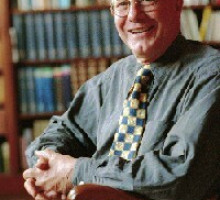A monumental event in Eliot scholarship.
Pegasus Award for Criticism 2016
This critical edition of T. S. Eliot’s Poems establishes a new text of the Collected Poems 1909–1962, rectifying accidental omissions and errors that have crept in during the century since Eliot’s astonishing debut, "The Love Song of J. Alfred Prufrock." As well as the masterpieces, the edition contains the poems of Eliot’s youth, which were rediscovered only decades later, others that circulated privately during his lifetime, and love poems from his final years, written for his wife Valerie Eliot.
Christopher Ricks and...
A monumental event in Eliot scholarship.
Pegasus Award for Criticism 2016
This critical edition of T. S. Eliot’s Poems establishes a new text of the Collected Poems 1909–1962, rectifying accidental omissions and errors that have crept in during the century since Eliot’s astonishing debut, "The Love Song of J. Alfred Prufrock." As well as the masterpieces, the edition contains the poems of Eliot’s youth, which were rediscovered only decades later, others that circulated privately during his lifetime, and love poems from his final years, written for his wife Valerie Eliot.
Christopher Ricks and Jim McCue have provided a commentary that illuminates the imaginative life of each poem. Calling upon Eliot’s critical writings, as well as his drafts, letters, and other original materials, they illustrate not only the breadth of Eliot’s interests and the range of his writings, but how it was that the author of "Gerontion" came to write "Triumphal March" and then Four Quartets. Thanks to the family and friends who recognized Eliot’s genius and preserved his writings from an early age, the archival record is exceptionally complete, enabling us to follow in unique detail the progress of a mind that never ceased exploring.
Following the collected and uncollected poems of the first volume, this second volume opens with the two books of verse of other kinds that Eliot issued: the children’s verse of Old Possum’s Book of Practical Cats and his translation of St.-John Perse’s Anabase. This volume then gathers the verses Eliot contributed to the learnedly lighthearted exchanges of Noctes Binanianæ and others for intimate friends or written off the cuff. Each of these sections has its own commentary. Finally, and pertaining to the entire edition, there is a comprehensive textual history that contains not only variants from all known drafts and the many printings but also extended passages amounting to hundreds of lines of compelling verse.
"I do not know for certain how much of my own mind he invented."—William Empson








